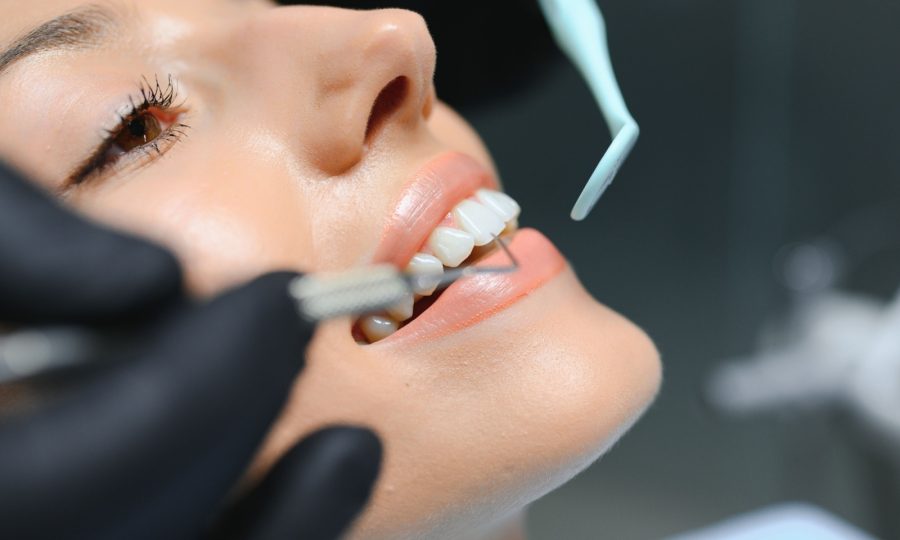How Long Does a Dental Cleaning Take?
While most people understand that dental cleaning is important, like many things in our lives, it often seems like another obligation—one for which we don’t feel like we have the time. However, dental cleaning, like doctor’s appointments or eye check-ups, is a crucial part of keeping up our health. So how much time should we budget for a cleaning?
Depending on how clean your teeth are and whether you need any other tests, a dental cleaning generally takes between 30 minutes to 1 hour. If you have lots of plaque buildup or your dentist discovers other issues, the process could also take a little bit longer.
Now, let’s have a look at what’s involved in a dental cleaning.
What Is Dental Cleaning?
Dental cleaning is the process of getting your teeth cleaned by a professional. A dentist’s office has access to advanced tools and processes that provide a more comprehensive cleaning than what you can accomplish in your home.
Oral health is not only essential for a good smile, but research has also increasingly shown that good dental hygiene is linked to overall health. As such, it’s important to ensure that your teeth are cleaned regularly. The Canadian Dental Association recommends a check-up every six months, though this depends on your oral health and your dentist may recommend more or less frequent visits.
Usually, a dental cleaning also comes with a dental exam, where your dentist checks your mouth for factors that might affect your oral and overall health. In particular, your dentist might look for:
- Early signs of cavities
- Signs of inflammation, gum disease, or tooth decay
- The condition of prior dental work (root canals, fillings, etc.)
- Signs of other serious conditions like throat or mouth cancer
In order to prevent such issues it’s important that you follow the appointment schedule that your dentist recommends.
What’s Involved in Dental Cleaning?
A standard dental cleaning involves five distinct steps. We’ll go through these one by one.
Plaque & Tatar Removal
A major goal of dental cleaning is removing the buildup of plaque and tatar. Professional tools allow your dental hygienist access to parts of the teeth that aren’t as easy to clean with a basic , household toothbrush.
Build-up of plaque and tatar can cause a host of unwelcome conditions like gum disease, cavities, or periodontal disease, so making sure that your teeth are clean is crucial.
Note that, depending on how often you actually brush and floss, this step in the cleaning process can vary quite a bit in how long it takes. The better your oral hygiene habits, the more quickly your dental cleaning will be done.
Brushing & Flossing
Next, your dental hygienist will use an electric brushing tool and gritty toothpaste to give your teeth a good clean. This process should have the effect of removing any plaque and tatar that are still present on your teeth.
Once your teeth are polished, your dental hygienist will follow up with a flossing. A professional flossing is more effective than what can be done at home, and will target any trouble spots in your mouth.
Fluoride Treatment
Finally, your cleaning session will finish with a fluoride rinse. Fluoride is known to build strong teeth, helps prevent cavities, and reinforces tooth enamel (the outermost, hard layer that protects your teeth).
Professional-quality fluoride treatments have a higher fluoride concentration than water and toothpaste, and therefore offer benefits that can’t be replicated in the home.

X-rays
Depending on your oral health, your dentist may sometimes request you get an x-ray. This process involves imaging of your teeth, your jaw, and your mouth. A healthy adult without cavities or other recent oral issues probably won’t need an x-ray at every appointment, but make sure you talk to your dentist if you have any questions about frequency.
Dental Exam
Normally, after a cleaning, your dentist will have a look at your mouth to check for current or potential issues like cavities or gum disease. This step is crucial because it helps your dentist identify possible problems with your health before those issues become more serious conditions.
The Time Investment of Dental Cleaning
In general, a dentist’s office does several dental cleanings per day, so the process is fairly quick overall and shouldn’t take up too much of your time. Altogether, the five steps above should typically take between 30-60 minutes. However, this estimate depends on the state of your teeth—the better your oral health is, the more quickly the whole process goes.
Regardless of time investment, dental and oral health is important—not only for your smile and your teeth, but also for your general health and well-being. Early detection of issues like gum disease or cavities allows your dentist to treat these conditions while they’re still small problems.
Spending 45 minutes at the dentist once or twice every year is a small time investment compared to the longer appointments that you might be making if you don’t take care of your oral health and are faced with more serious problems down the road.
Summary
Overall, dental cleanings are relatively quick appointments that you only need to make once every six months. An average cleaning lasts about 30-60 minutes, and can save you the future hassle of complex—and sometimes expensive—future dental procedures. Even if you’re busy, regular cleanings are worth the investment of time.
If you have any questions, want to know more about dental cleaning, or are interested in booking an appointment, contact us at South Bolton Dental Centre.









